Host: Jen Lamboy, Director of Strategy, Hybrid Marketing Co.
Guest: Sara Stewart, Co-founder of Ritual Cannabis Hospitality
Jen Lamboy, Director of Strategy, Hybrid Marketing Co.
Today I’m sitting down with Sarah Stewart. Forbes calls her the Cannabis Consumption Lounge Pioneer. She’s also the foremost expert in the space. She has managed and operated two of the first consumption lounges in the country and right now she is the cofounder and president of Ritual, which is a full service consumption lounge operations and business development firm. I’m really excited for all of you to hear from her, listen to her insights, and thank you so much, Sarah for joining me.
Sara Stewart, Co-founder of Ritual Cannabis Hospitality
Yes, thank you. The pleasure is mine, Jen.
Jen Lamboy, Director of Strategy, Hybrid Marketing Co.
Nice. So well, give us a little bit more background. I want to know how you got into the space, of course. But really what I want to know is why? Why are you here with such fervor and such passion?
Sara Stewart, Co-founder of Ritual Cannabis Hospitality
You know, I have been in hospitality for 15 years. I started out in Ohio, made my way to California. I did all of the biggest nightclubs in town. I did the biggest restaurants in town. I worked the guest lists of the Golden Globes. You know, I really set out to do what I intended to do in hospitality in LA. I’ve always been a cannabis consumer, I would say probably around since I was 18 or so, but more than that I’ve worked in hospitality and it’s an industry that if you don’t know if you’ve never worked in, it sucks you in. It’s hard to get out of. You end up drinking every night. Your friends become family. You know, you end up getting off your shift and going to another bar and making friends there with the bartenders and the lifestyle is a lot. So when I stopped drinking and working in hospitality, I felt the passion sort of leaving my body a bit. You know, I no longer wanted to partake in the culture. But cannabis is still a very big part of hospitality. If you’ve ever worked in a restaurant, you will know most people that work in these restaurants also consume cannabis. So when I was poached to…I say poached, but you know, I was incredibly excited about it and putting myself out there for sure. But I got to open the first cannabis cafe in West Hollywood as a manager, ground floor, serving cannabis and food in the exact same environment, and that really opened my eyes to what this space could be. It showed me first and foremost that people are willing to go through a lot to enjoy cannabis in public. But first to market is also first to mistake. So it taught me so much about what this new industry, this new sector of the cannabis industry is going to require and how different it is from the current landscape that exists today. So you know, a lot of times my biggest “why” is to normalize cannabis consumption in the same way that we’ve normalized alcohol and to bring it into the modern day world, into modern establishments, to provide a better substance, a healthier substance, but also to target people like me, because I think it’s, we all know, and we’re starting to see in data that people are drinking less and less, especially millennials in Gen Z.
Jen Lamboy, Director of Strategy, Hybrid Marketing Co.
What exactly falls under the umbrella of a consumption lounge? Because we see cannabis friendly event venues, we see edibles, cafes, you know coming from the cannabis marketing space. And we’re specifically working with retailers and a lot of them are thinking in both in mature and emerging states, they’re thinking oh maybe I’ll expand to have a consumption lounge. But what are the different…define it for me? Like what are the different things that fall under that umbrella?
Sara Stewart, Co-founder of Ritual Cannabis Hospitality
It’s not great that the term that’s kind of been adopted is lounge, because what is a lounge? What does that mean? Unfortunately, it’s kind of resulted in a lot of the earliest lounges and establishments that we’ve seen popping up, kind of like built behind a retail store, a smaller area that just turns into like a glorified space to smoke. But you know, if you come from hospitality, if you understand the bigger picture here of what we’re trying to create, that’s actually not the right term, but it’s also not the right model that we want to build moving forward. So, you know, we’re really trying to convince people that a lounge is not actually just a smoking lounge, but it can mean so many different things. We say venue sometimes instead of a “cannabis” venue. Because the venue could be an event space, it could be a restaurant, it could be a concert venue, you know, it could be a place for conferences, live music, multipurpose. So for us, like there is this underlying, there needs to be a better term out there and what is that term going to look like. But because it’s been limited, we’ve seen what I mentioned previously, which is like the smaller spaces. There are states like Illinois who haven’t really written any kind of regs except for they need to be connected to a dispensary.
Jen Lamboy, Director of Strategy, Hybrid Marketing Co.
Sure.
Sara Stewart, Co-founder of Ritual Cannabis Hospitality
It’s very limiting for a license holder who maybe has a smaller retail store and now they have to figure out how to build a lounge or attach a lounge to that, when in reality lounges need to have kitchens and they need to, you know, be able to produce food and beverage on site internally. Just having a food truck is actually not helping that business make any money. It might be attracting more people, but it’s not a sustainable business model. So the key to all of this is really, you know, not telling a lot of license holders “don’t, you know, find a retail location and try to build behind it. Instead, look for an abandoned restaurant. A restaurant going out of business. You know somewhere that already has grease traps and have already ventilated these spaces correctly.” So that it’s easier and more approachable to come into. So you know, because there’s no, I want to say proof of concept right now that exists, that’s like, this is the model we need to take. That term of lounge is so loose and can be defined as many different things. But I do like to point out that it is like a licensed venue open to the public daily, where you wouldn’t see a consumption lounge as an event pop up. You know, that would be an event which would look totally different. And probably not have sales on site as well.
Jen Lamboy, Director of Strategy, Hybrid Marketing Co.
Sure. Well what are you seeing as far as the regulations? I know in Nevada there was in terms of when they were going to have a bit of a lottery system potentially they really wanted you to have a retail license to kind of bump up your chances of then getting a consumption lounge license. Is that standard across the states that are considering opening such operations?
Sara Stewart, Co-founder of Ritual Cannabis Hospitality
Yes, and there’s pros and cons to that. When you do a lottery system, you’re not really putting these licenses in the hands of people who have the funds and the means and the knowledge and understanding of how to build these businesses. While it is probably a lot more fair for sure, it is more difficult to see the whole entire industry grow when that’s who’s awarded the licenses. Whereas merit-based licenses require a lot of time and planning and effort and energy going into what that looks like in order to win. So a lot of the time you can kick start or accelerate the lounge program in your city or state if that is the case. You know, it is difficult as well to consider like, let’s say Nevada that issued social equity lounges. They also issued independent lounges and lounges that are connected to a dispensary. There is a massive advantage of those licenses that are connected to a dispensary, and they’re going to see far more sales and far more revenue than a lounge that’s not allowed to have any to-go sales. So it is a little unfair in that capacity. And then you can take that a step forward to California, West Hollywood, where some of their licenses have to be 50% edibles, only consuming edibles is not totally an experience. Sure, you can do a mocktail program, but that’s only targeting the canna-curious and the first time consumers, you know, especially when we need them to consume 2, 3, 4 drinks on site to feel something. So you know, flower is king. So how do you get those consumers to come into a lounge when their only option is edibles and consuming an edible is not really an experience in itself as is. So you know, that kind of comes into play as well. There is a lot of hope for New York. Maybe New York will do something a little bit better than we’ve seen in other states. But there hasn’t been, you know, that proof of concept yet to say this is absolutely what this state needs in order to succeed. But I do believe having retail attached on site is a total game changer.
Jen Lamboy, Director of Strategy, Hybrid Marketing Co.
Sure. Well, I know you had an interesting post not too long ago that said, I don’t know who needs to hear this, but if you’re building a cannabis consumption lounge primarily for stoners, you are doing it wrong. And what’s most interesting about that is the, I don’t know if you want to call it, there’s a lot of conversation around that particular statement. So give us a little bit more why you said that and why you think that and and kind of some of that I’ll say backlash a little bit that that you might have received for that?
Sara Stewart, Co-founder of Ritual Cannabis Hospitality
Yeah. And look, you know, I’m a stoner, so I don’t want to, I shouldn’t have probably said stoners, but I should have said a demographic I sometimes call the super stoners. It’s something that we say often, that it’s like maybe heavy concentrate users and those who are buying more than just an eighth when they go into a dispensary, or they have a variation of products that they’re consuming all at once, those are super stoners for us. However, I still consume cannabis every single day. So you know, first and foremost, I think that having to walk into a dispensary, to walk into a consumption lounge is going to deter a lot of the population. There’s still people out there who don’t want to go in dispensaries, would rather someone go for them discreetly, have it delivered to their house. There’s a taboo there. So when you build a consumption lounge that’s mainly catered to the cannabis user already, those kind of establishments are what I’m referring to and how they’re being built out where there’s not a lot of normalization. A lot of the time they’re more masculine, They’re tailored to men more than than the female demographic. And if you’re not building it for women, chances are women aren’t going to show up there. So our idea is, you know any normalized establishment. A bar isn’t saying how are we going to get heavy drinkers and alcoholics in here all day, every day. They’re trying to normalize the experience as much as they can to attract every single type of alcohol consumer in the market, whether it’s a light beer, a glass of wine or you know, a bottle. So we want to do the exact same thing in these environments by not just targeting the heavy cannabis users and the people that are consuming every day, but maybe you know our parents or our friends. Like I have a lot of friends who work in nightlife who are heavy drinkers and they would consume a can, or a light cannabis beverage, but they would never go in there and want to smoke. How do I get them into my establishments? And it’s through the normalization of the establishment itself. If I’m building it for stoners, what we’ve seen, and I’m just going off of lounges that have existed already, is that they’re dark and they’re masculine and they’re behind a dispensary. If someone can make a consumption lounge really tailored to that, you know, super stoner demographic and still make it very normalized, I would love that. But unfortunately we have to bring, we have to make it approachable for everyone really to eliminate the stigmas around the the plant as well. So you know, I wish I could just clarify that for everybody. But the people who are reading the post and saying yes, we get it, a lot of those people coming from hospitality are seeing the bigger picture anyways. So, you know, I like the controversy on LinkedIn a bit because I do get a lot of feedback from people saying this is not going to work. Cannabis lounges are not going to be profitable. You’re wasting your time. And those people in my opinion are coming from a very specific retail lens or cultivation lens or brand lens and maybe don’t understand hospitality and how these establishments work and how to, you know, build revenue streams from within and attract the masses.
So you know, I’m not letting it affect me too much and I am going to continue posting things that I think are going to help shape the industry in a better way and open people’s eyes to, you know, what I think is in 10 years going to be the biggest, most popular sector of the cannabis industry.
Jen Lamboy, Director of Strategy, Hybrid Marketing Co.
Interesting. Yeah, right. Well, I think too, I think just having the conversation within this space because within the cannabis industry there’s so many, I think it’s very different. The conversation is very different inside our walls of this little pocket of, yeah, of the industry versus when you step outside and think about the consumer conversation, it can be very different. So I’m also curious to know what are folks outside of the industry on the consumer side really saying about consumption lounges? I imagine that it’s not even on the radar for a lot of folks.
Sara Stewart, Co-founder of Ritual Cannabis Hospitality
When I talk about it sometimes, like, it’s so fun to see people’s eyes light up, like that’s a thing. This is happening somewhere, like, where can I go? But on the other end of it, being at Lowell Cafe, which is the first lounge in the US that sold food and cannabis in the same environment, was so normalized and I saw parent-teacher conferences, birthday parties, parents coming with their kids for this first time experience. We had the cutest teacher group actually come up from Long Beach together to experience this for the first time. We also had a line around the block almost all day every day. So for me that was like, oh, once people know about this, you know, there is such a high demand. You know, Lowell, as I said earlier, first to market, first to mistake, things were not perfect there, but people continued to come because they just wanted to see what this experience was going to be like. And, you know, that opened my eyes to, once people know that this is here and it’s going to happen and that there’s going to be food and more than just, you know, seating and smoking, but an experience, I just think it’s a no brainer.
Jen Lamboy, Director of Strategy, Hybrid Marketing Co.
What are some of the mistakes that you think folks are making, or maybe things that they’re not considering when they’re wanting to open a consumption lounge?
Sara Stewart, Co-founder of Ritual Cannabis Hospitality
Not having enough square footage is always a problem in hospitality. What your register does in 2 minutes, a lounge takes 2 hours to complete that same amount of revenue. Because people are seated as opposed to just cranking. So there is a difference that kind of trickles down from there in scheduling and the way that you hire your labor, the labor pool that you’re getting. And on top of that, if you’re hiring from dispensaries and not from hospitality establishments, that’s not going to work. If you’re staggering your employees like a retail store instead of a hospitality business, your labor costs are going to be through the roof. So there’s like many different ways in which, you know, we couldn’t have even known, you know, coming into this space for the first time. And now I just want to make sure the license holders don’t make these same mistakes. And I don’t blame them when you have, you know, 50 retail stores, 10 retail stores, that’s your bread and butter and that’s what you’re really good at. And the requirements here are so vastly different. Also, you know the idea of bringing your own cannabis sounds great to just get something open. But if you’re not selling cannabis onsite, you’re missing that major revenue stream, but you’re also losing control of the environment. You know, if someone orders a cup of coffee on site, let’s say, and then they also have a Jack Herer joint, I use this example often, you know, terpinolene is a terpene I don’t particularly love because it’s racy and it can give you anxiety. So imagine someone consuming that and a cup of coffee and not knowing or not having a server, bartender, budtender of sorts to monitor and ensure that that’s going to be a good experience. There’s a reason we don’t bring our own liquor into pubs and in bars. There’s a reason why bud tenders exist, bartenders exist, and we have to use that same analogy here or else overconsumption is going to happen. And the other major thing that I like to call out is allowing edibles on site. It’s just not a good idea. Five to seven pass-outs a week we had the first week we opened at Lowell Cafe and that was from edibles on site. And you know, sometimes it doesn’t even affect someone until they’re about to get in their car and leave your establishment. And when you’re trying to approve a consumption lounge in a new city, that’s the first few questions that they’re going to have is how are you mitigating overconsumption and what are you going to do about people getting in their cars after consuming for a few hours? And our answer to that is fast acting low dose beverages that have a faster offset time instead of allowing you know five, ten, twenty hundred milligram edibles on site.
Jen Lamboy, Director of Strategy, Hybrid Marketing Co.
I think probably one of the key differences between the retail experience and then a consumption lounge is the idea of a single serving.
Sara Stewart, Co-founder of Ritual Cannabis Hospitality
Absolutely. And we don’t even really know what a single serving looks like in cannabis yet. Because you know, if you think of what came first, pubs or liquor stores, the answer is pubs. And then in the cannabis space, what came first? Dispensaries. So alcohol saw what a single serving, what a shot looks like, you know, from early stages of the industry. Whereas now we’re kind of scratching our head as to what does a single serving dab look like? Some people say it’s .2, some people say it’s .3, some people are like, I’m a heavy consumer, it’s .5, it’s .7. So it’s really challenging to meet everyone’s needs when we need single serving products.
Jen Lamboy, Director of Strategy, Hybrid Marketing Co.
Sure. Well, I’m guessing there’s not a, what you would be looking for would be a standardization of this. Is this, you know, a standard definition of this is what? Single serving when you think about a shot versus a glass of wine versus a beer?
Sara Stewart, Co-founder of Ritual Cannabis Hospitality
Absolutely. And then not letting the public kind of give that opinion on that, you know, because someone can say, well I drink every single day, one shot is not going to do anything for me. Whereas I haven’t had alcohol in like 2 years, so that would be a whole different situation for me, and the same does go for cannabis.
Jen Lamboy, Director of Strategy, Hybrid Marketing Co.
Sure. Talk a little bit more about the difference between the budtender and, you know, somebody who’s more hospitality focused. Why? Can you speak even more specifically on why you wouldn’t necessarily want to hire a retail budtender to then be serving in the same capacity in a consumption lounge?
Sara Stewart, Co-founder of Ritual Cannabis Hospitality
The very first thing that always sticks out to me after working in this environment and actually making those mistakes of hiring budtenders sometimes versus hospitality individuals was, in a restaurant you are never allowed to stand. Like if you got room to lean, you got room to clean, is like you know, what we say and you can never be standing around, and always moving and active. And in a retail environment, so much standing around, and you have to be like in a section and just waiting for people to come to you. In a restaurant you are going to them in every scenario. So time management is of the essence and it’s really important. So for us it’s like which is easier for us to teach, time management, menu education, how to talk to a kitchen, how to go in there and get what you need and get out without disrupting anything? How to go through serve safe training that you have to go through with the state versus hiring someone who does come from hospitality, who is used to learning difficult menus. And we can come in with rigorous cannabis education and sure that they’re going to learn about it on site, then they also already have those skills that they can bring into the hospitality experience. It just doesn’t work as well when you have so many soft and hard skills to teach someone you know versus educating them on the cannabis product. And as I mentioned earlier, most people in hospitality are already consuming, you know, to a degree. So it’s maybe just getting them out of the recreational consumption and teaching them more about the plant, but they’re not, you know, foreign to it by any means.
Jen Lamboy, Director of Strategy, Hybrid Marketing Co.
Sure, that makes a lot of sense. So you’ve listed a couple of states that are doing it well or starting to kind of tap into that arena. What are states again, like I’m saying on the marketing side, we’re seeing a lot of retail operations open up in emerging states, emerging markets, New Jersey, New York, those folks are also thinking about tacking on a consumption lounge to their space. What states do you think are going to be the ones who are going to do it best kind of in this emerging space?
Sara Stewart, Co-founder of Ritual Cannabis Hospitality
I really hope to say Nevada has, like sort of turned it on, as like these are the hospitality standards that are necessary to to allow California, for instance, said that you know, for the state of California food and ice is considered food production, or, I’m sorry water and ice is considered food production. So when the state says no food allowed in consumption lounges, we’re like how are we going to provide ice and water to our patrons who have cotton mouth who need to drink water during their experience, and it took some lobbying. They had to go back and change those regs. Nevada came in very early on from a state level, not even from a city level. They came in as the state and said here are the regulations that we are going to set. We want all of these establishments to look like hospitality venues. We want you to be able to incorporate all of this together, but the one thing that they kind of dropped the ball on was everything has to be single serving. You know, you can’t take any products out of a lounge. So that, you know, makes it a lot harder for a business who’s only selling eighths most of the time to not be able to do that anymore. So we’re hoping New York, as early as they are now, can look at what Nevada is implementing, see if you come to market, and then roll that into their regs to ensure food and beverage is allowed on site. You know, not as many workarounds with, we’re seeing it a lot. Each place needs a different door or a different entrance and a lot of that stuff doesn’t really matter when you get down to the health code. It’s just words and complications that don’t need to exist. So I want to say that New York is going to be that state and I’m giving it a lot of, you know, just like preconceived because it is New York City, this is going to happen. But we’ve seen them drop the ball a little bit already. So until that changes, I’m going to stick with Nevada as the best city and state. That’s Vegas in particular that’s doing it now. But we shall see. New Jersey is already saying no food production on site and that you’ll have to have food trucks or something like that, workarounds very challenging, just like California did. So as much as I’m excited about my New York, you know, friends and projects coming online, it’s still just a lot of, you know, why are they making us do this? A lot of these things don’t even exist in bars and restaurants, so why are they making us do it with cannabis?
Jen Lamboy, Director of Strategy, Hybrid Marketing Co.
Sure. So where does Ritual kind of come into that picture on all of this? You’ve got experience, you’ve got not only on the hospitality side, but specific to consumption lounges. But what’s the role that Ritual is playing right now?
Sara Stewart, Co-founder of Ritual Cannabis Hospitality
We’re wearing a few hats at the moment because, you know, I’ve been consulting on consumption lounges for about four years. It’s been a very slow rollout. And I realized early on that a lot of my clients, my friends, the license holders I’m communicating with, often don’t have the funds to do this on their own. And they can’t really afford to pay me and they definitely can’t afford to build out these establishments. So to talk to an investor and for them to raise money on something they’re not even sure they’re doing correctly is very, very challenging. And so it was almost like the chicken and the egg. What’s going to come first, you know, are we going to have these license holders who are going to come to market in a new state or but there’s no money to even, you know, bring this industry forward. So we’ve pivoted a lot and we’ve realized that with my network on LinkedIn and how vocal I am about consumption lounges and same thing with my business partners, that we are going to start to raise funds for ourselves as a “hospitality group” in the cannabis industry. There’s a lot of hospitality groups that exist in alcohol and entertainment, and I want to do that exact same thing in the cannabis space. I also think it’s going to kickstart the industry a little in a way of deploying funds into the right projects with the right operators in the right locations that are just going to totally prove proof of concept and show that these businesses will be successful. And hopefully the floodgates will open and many more lounges will come to market when that happens. But as far as consulting goes, we do have a few clients. We’re moving forward in a few different markets, but we’re also very much actively raising for our own lounge project in Nevada that we’re super excited about and we’ve been working on for about six or seven months now. So you know, simultaneously doing both, and fortunately with the slowness of the industry, we haven’t had a ton of overlap just yet.
Jen Lamboy, Director of Strategy, Hybrid Marketing Co.
Sure, sure. So when would you, when do you potentially think you might be able to open doors?
Sara Stewart, Co-founder of Ritual Cannabis Hospitality
Definitely 2025, like we will be open by 2025. It depends on how quickly we can get construction and things up and running. You know, we don’t have a license so we’ve been working with license holders on you know which location is the best, who’s going to be the best fit for us, where you know we’ve been a little picky in that regard and so we’re waiting for our prospective partners to get their conditional license as well. Once they have that in hand, it’s going to definitely move the process on a lot quicker. But there will be lounges opening by the end of the year in Nevada. A lot of great people I know that are boots on the ground making these happen. So you know, aside from just the lounges that we’re doing, we’re so connected in this world and who’s coming online, which operators and which groups and who wants to invest. So we’re kind of just embracing every element of it as it’s in infancy to really hope that it grows.
Jen Lamboy, Director of Strategy, Hybrid Marketing Co.
And what would you put on the menu? What do you suggest for folks or what would you guys put on your own menu?
Sara Stewart, Co-founder of Ritual Cannabis Hospitality
Well, for the food portion, I mean good restaurants are successful because of their food and beverage programs. People don’t go to mediocre food establishments that often. So food is of the utmost importance to us. Tapas style as well is pretty important because you know, in Lowell Cafe we did a lot of individual meals which lowers your check averages. But also once you have consumed cannabis and you’re sharing that with everyone, you want to share everything at the table and make it a very communal experience. So definitely tapas style items, something very big on is coffee and smoothies throughout the day. People think that coffee culture is a morning daytime thing, but in the cannabis community it is an all day at any point of the day type thing. So we have really robust coffee, smoothie and fresh juice programs as well that I’m super excited about because I think that everyone thinks that stoners want munchies and unhealthy food options, but that’s actually not really the case for most people. They still want to live that healthy lifestyle and cannabis is considered lifestyle or health and wellness in a lot of different ways. And so we’re trying to go that direction and not as much the Stoner munchie vibes, sure.
Jen Lamboy, Director of Strategy, Hybrid Marketing Co.
Do you see psychedelics making their way into a similar space? We see it on, you know, because we’re cannabis marketing, there’s a lot of buzz around all this momentum. Just here, you know, last week we see a lot of buzz around all this momentum. What is that? How does that look in a consumption lounge space?
Sara Stewart, Co-founder of Ritual Cannabis Hospitality
I would love that. I think that that would be so awesome. And everybody thinks that these lounges can’t exist without alcohol. I would love to see mushrooms and psychedelics coming into this space before alcohol is reintroduced, you know. But I’ve spoken at a couple conferences around cannabis and psychedelics. I’ve sat on a lot of the psychedelic conferences and panels that they were having and I actually even spoke or stood up and asked a question at one of these panels and just said, you know, I build cannabis venues. Is there a world in which you guys see these two worlds being incorporated together, and you know, their answer to me was unfortunately not. Unless you guys are partnering with pharma and you’re going to take more of a medical approach to these lounges then they won’t be as recreational. We won’t be seeing recreational sales, at least legal recreational sales of psychedelics in these spaces. But he did say in markets maybe like Florida, where cannabis is still medical and moving, you know, into this, I guess other medical states as well who aren’t ready to, Ohio as well. If they did want to take the ideas from, I think Maryland has some independent medical consumption lounges, there might be a path in those environments where it exists only in that medical realm, but unfortunately never in the recreational side of things.
Jen Lamboy, Director of Strategy, Hybrid Marketing Co.
Well, medical lounge just that doesn’t have that ring to it.
Sara Stewart, Co-founder of Ritual Cannabis Hospitality
It does that, you know, it’s hard to set the vibe in a medical lounge. It sort of feels like a doctor’s office or something when you’re thinking about it. So I don’t know, maybe. Maybe that won’t happen, though, and maybe people will get really creative with the health and wellness side of the medical space.
Jen Lamboy, Director of Strategy, Hybrid Marketing Co.
Sure, yeah, sure. We see that in beverage a lot where there’s, you know, we’re seeing organizations who are coming from the non-cannabis space and dabbling a little bit in cannabis and kind of vice versa. So what I think what’s exciting about this space is that it’s never constant, not only with direct relations, but innovations, new ideas, folks like you who are completely passionate about consumption lounges or cannabis, and who are bringing…you know, it seems to me that this isn’t just for you, “Hey, let’s see if it works.” This is like, this is your track and this is where you’re going.
Sara Stewart, Co-founder of Ritual Cannabis Hospitality
Definitely. A few people have even said to me like, hey, so what is your plan B? And I’m like, I don’t think you understand. There is no plan B here. This is it. And coming from hospitality, it’s like clear as day to me and my partners as well, which I’m really grateful for. And so I’m just more inspired and motivated more than ever to show, you know, what these can be and kind of, you know, politely prove some people wrong.
Jen Lamboy, Director of Strategy, Hybrid Marketing Co.
I love it. Awesome. Sarah, well, thank you so much. If you want to learn more about Sarah’s work, her website is ritualteam.com Find her on LinkedIn if you are not already following her. She always has interesting things to say, a lot of insight, and there’s a lot of momentum behind what you’re doing. So we’re on the sidelines cheering you on, Sarah.
Sara Stewart, Co-founder of Ritual Cannabis Hospitality
Thank you. I appreciate that so much.
Jen Lamboy, Director of Strategy, Hybrid Marketing Co.
Thanks.
Sara Stewart, Co-founder of Ritual Cannabis Hospitality
Thank you. See ya.









